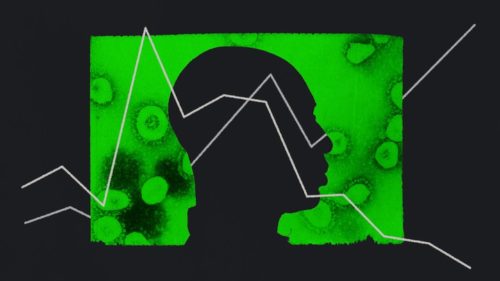Stop Blaming Black People for Dying of the Coronavirus
Share
Explore Our Galleries
Breaking News!
Today's news and culture by Black and other reporters in the Black and mainstream media.
Ways to Support ABHM?
By Ibram X. Kendi, The Atlantic
New data from 29 states confirm the extent of the racial disparities.
I grew up in the Christian Church, the second son of two ministers. I’m not one for making biblical references about my life, but I can’t say the same about my father.
Two weeks ago, Dad likened me to John the Baptist, a voice crying out in the wilderness for racial data on the pandemic. I had to remind him that, unlike John, I was not crying out alone. Senator Elizabeth Warren, Representative Ayanna Pressley, and a quintet of black doctors at the University of Virginia had also raised the alarm.
But we were indeed in the wilderness. On April 1, hardly any states, counties, hospitals, or private labs had released the racial demographics of the people who had been tested for, infected with, hospitalized with, or killed by COVID-19. Five days later, citing racial disparities in infection or death rates from five states or counties and the racial demographics of the worst coronavirus hot spots, I speculated that America was facing a racial pandemic within the viral pandemic. But we needed more racial data to know for sure.
Ibram X. Kendi: What the racial data show
Now—after so many Americans joined our chorus, after so many states and counties released their first sets of racial demographic data, after so many data sets showed appalling racial disparities—we know for sure.
At least 29 states have released the racial demographics of confirmed coronavirus cases, death rates, or both, according to the COVID Racial Data Tracker. The tracker, a collaboration between The Atlantic’s COVID Tracking Project and my colleagues at the Antiracist Research and Policy Center, is being developed to track, analyze, and regularly update racial data on the pandemic within the United States. These initial data provide a still-incomplete picture of the national outbreak’s disparities. In 38 percent of the 194,000 cases that these 29 states had reported as of April 12, no racial data were attached. And some states mix racial and ethnic categories in reporting their numbers. But the federal government’s failure to assemble these data has left it to us to produce this resource, however incomplete, for researchers, advocates, and the public…
Full article here
More Breaking News here
See ABHM galleries here










Comments Are Welcome
Note: We moderate submissions in order to create a space for meaningful dialogue, a space where museum visitors – adults and youth –– can exchange informed, thoughtful, and relevant comments that add value to our exhibits.
Racial slurs, personal attacks, obscenity, profanity, and SHOUTING do not meet the above standard. Such comments are posted in the exhibit Hateful Speech. Commercial promotions, impersonations, and incoherent comments likewise fail to meet our goals, so will not be posted. Submissions longer than 120 words will be shortened.
See our full Comments Policy here.